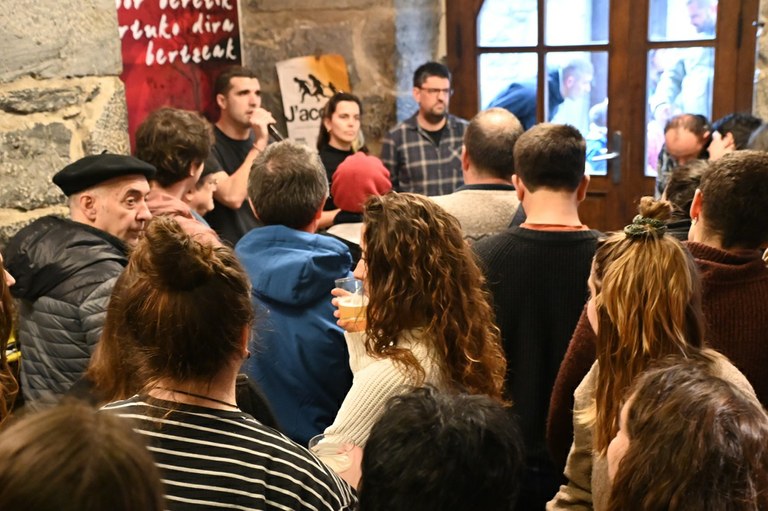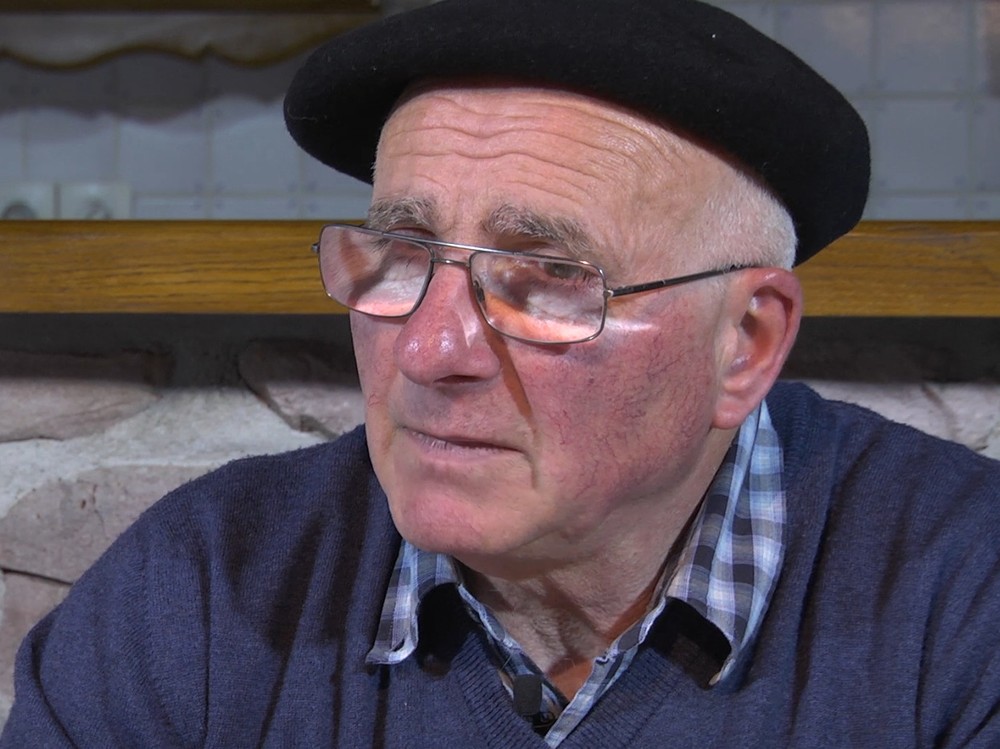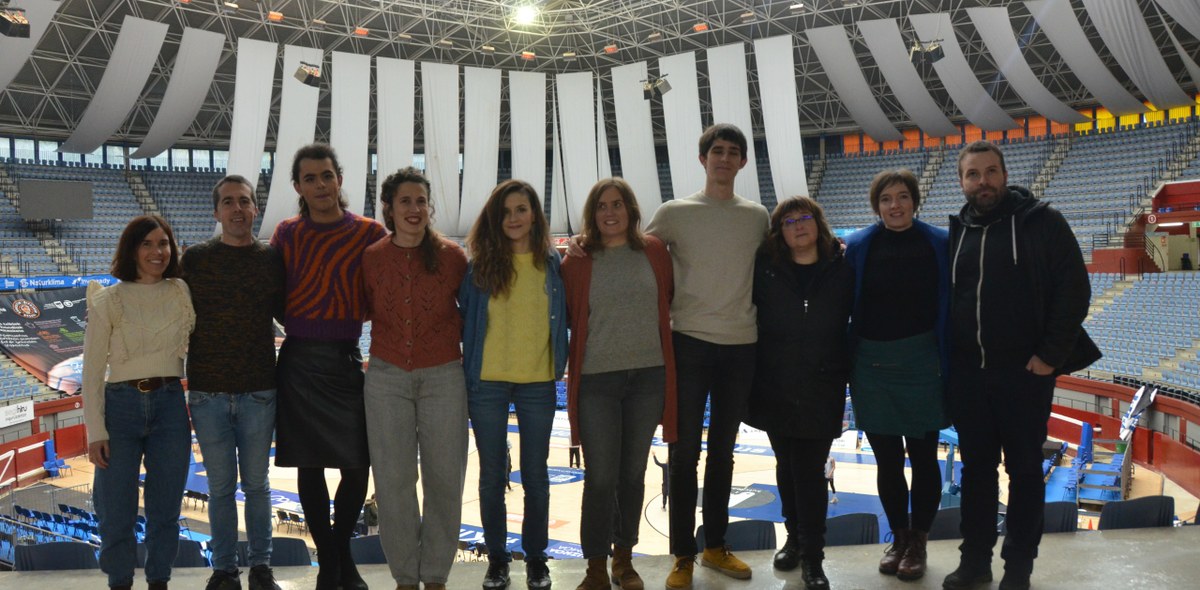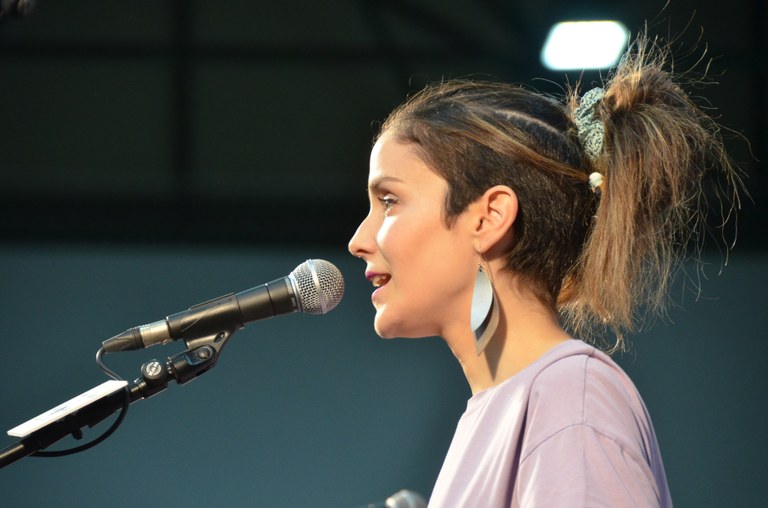In the melody of literature
- The territory of creativity and the blurring of the borders between cultural expressions are today one of the most palpable trends, and proof of this are the programs that combine literature and bertsolaris. Seeing writers and bertsolaris together on stage is apparently a pleasure for the public. However, Karmele Jaio acknowledged that this was the first time he had dedicated himself to Bidebarrieta Kulturgunea in Bilbao, and that he was aware of the rarity of the early stages at more than one age.

On the first occasion to put themes to the bertsolaris, Jaio was given experienced fellow travellers: Maialen Lujanbio and Unai Iturriaga. The experiment yielded a good result, as the bertsolaris found numerous singing gaps in the plan that Jaio had skillfully prepared. The literary quotes read by the writer set the way, almost involuntarily jumping from humor to the systemic concerns and from the crudety of the world to fantasy.
In his first trade, Iturriaga and Lujanbio met face to face with the question many others had previously wished to answer about the place that literature occupies in today's world. Birth made them observation: in these times of uncertainty, people want concrete, compelling answers; but literature gives more questions than answers.
BERTSO SAIOA LITERARIA
Nor: Karmele Jaio, Maialen Lujanbio
and Unai Iturriaga.
Where: In the library of Bidebarrieta in Bilbao.
When: 19 August.
Then Olga Tokarczuk and a comment by Milan Kundera, helped by Olga Tokarczuk, reflected on the most powerful and small languages. They touched from humor, because the subject was also raised as in the trades of an eighth of the usual ones. The Basque militant writer Lujanbio has received a great offer to write in Spanish, and although he opposes his principles, Iturriaga has been blinded by the tranquility that gives them that money: “This is the English of my daughter who pays,” a verse concluded. Lujanbio's strict reasons ended up convincing him that two militants "cannot live without epic."
Literature, on the other hand, offers us curves more often than lights, and Jaio soon led the bertsolaris to darker issues. First, based on Juan Carlos Onetti's ambiguous attitude of love, he placed Iturriaga in the corpse to see the woman she abandoned when she was young. Then Jaio put on the table his terror of being raped and put Lujanbio on the skin of the mother of two girls and two boys. The two difficult balancing issues, but the bertsolaris endured it well. Lujanbio just told the truth at the last point: “In a world where one is responsible, another is not afraid.”
Nostalgia and the times that have gone forever made more than a cuckoo in the program. In the role of siblings looking at childhood memories at the home of their newly deceased parents, the Bertsolaris played with the youth referents, each in a melody. Maialen Lujanbio chained in a verse the rhymes of the flags morore, hardcore and in illo tempore. Iturriaga sang in an emotive verse by the entrepreneur who has seen his old and forgotten friend, who looks precarious.
Lujanbio and Iturriaga were able to answer the doubts that emerged from the literature, following the invitation made to them by Karmele Jaio to enter territories of difficult repression in Bertsolarism. In the context of the crisis of the pandemic in cultural activity, Bidebarrieta was a respiratory space.

Maiatzaren 8an hasiko da Bizkaiko Bertsolari Txapelketako sailkapen fasea. Zortzi saio bikoitz jokatuko dira maiatzeko eguenetan. Sarrerak eskuragai daude bertsosarrerak.eus atarian.
Asteburu honetan hasiko da Gaztetxeak Bertsotan egitasmo berria, Itsasun, eta zazpi kanporaketa izango ditu Euskal Herriko ondorengo hauetan: Hernanin, Mutrikun, Altsasun, Bilboko 7katun eta Gasteizen. Iragartzeko dago oraindik finala. Sariketa berezia izango da: 24 gaztez... [+]
Vagina Shadow(iko)
Group: The Mud Flowers.
The actors: Araitz Katarain, Janire Arrizabalaga and Izaro Bilbao.
Directed by: by Iraitz Lizarraga.
When: February 2nd.
In which: In the Usurbil Fire Room.
In recent years, I have made little progress. I have said it many times, I know, but just in case. Today I attended a bertsos session. “I wish you a lot.” Yes, that is why I have warned that I leave little, I assume that you are attending many cultural events, and that you... [+]





















